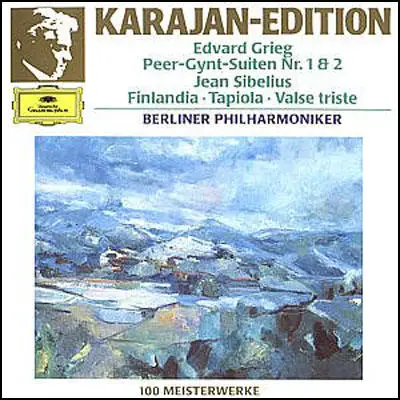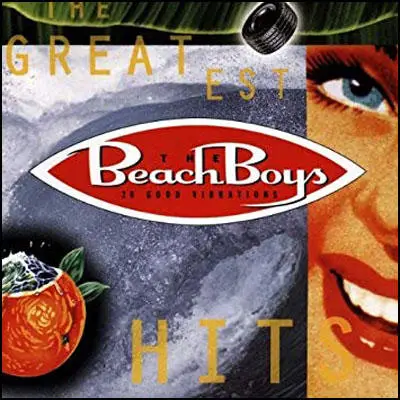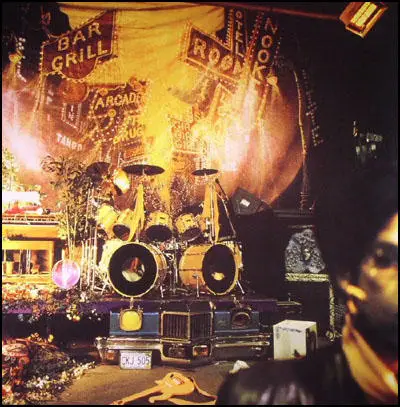Musical Memories of Lettice Maltravers
1. Young Child: Just like many other families, we didn't have a record player when I was a child and no one played a musical instrument. I was an only child and lived with my parents in Brighton. Music came to me through the wireless set, mostly the Light Programme. We listened to just one thing on the Home Service, and the Third Programme was outside our awareness. These theme tunes of the 1950's are still familiar to me - I've a little quiz to see if you remember them too. Listen with Mother; Housewives Choice; Music While You Work; Journey Into Space (climbed on to Dad's knee for this one, with a spacegun banana at the ready in case of aliens); Family Favourites; Billy Cotton Bandshow; Navy Lark; Hancock's Half Hour, In Town Tonight. All these can be heard at BBC Theme Tunes:
2. Church: I was brought up as a Catholic. The only live music within my sphere, apart from family sing songs and school singing lessons, was in church, some of it in Latin. Although my mother wasn't a Catholic she had promised to bring me up in the faith. She herself had been brought up as a Primitive Methodist and had a good number of rousing hymn tunes. My father dutifully took me to mass every Sunday until I left home, and neither of us went again after that.
I went to the convent school at 11, and joined the choir. Everyone learned to sing the 15th century Missa de Angelis. Listening to it now takes me straight back to the white walled convent chapel with the sun shining through the stained glass window making richly coloured patterns everywhere. The chapel was demolished in the 1970s to make way for a housing development. Kyrie Eleison from the Missa de Angelis (15th/16th century).
3 School Music Club At school there was a record club on a Tuesday lunchtime. Girls brought in records from home (vetted by Reverend Mother - only classical music was approved, and nothing too stirring). If they were deemed suitable they were played on the school record player for the delectation and delight of the club members. This was how I began to discover a whole new world of listening pleasure and response. Most of what I enjoyed would be considered hackneyed these days - the grand waltz from Swan Lake (Tchaikovsky), Carnival of the Animals (Saint Saens), Peer Gynt Suite (Grieg). I particularly remember Morning Mood from Peer Gynt (Herbert von Karajan, Berlin Phiharmonic Orchestra). It brings back the school hall with the smell of recently cleared school dinners, but it also gives me again that view through the crack in a door into another world of privilege and culture that I thought could never be mine.

4. Pop Music and Dancing: For my 13th birthday I was given a Grundig 4 track reel-to-reel tape recorder and for several years recorded the top 20 from Pick of the Pops, cursing Alan Freeman for talking over the introduction or interrupting before the end. I liked The Shadows and saw them live at the Brighton Ice Rink. Went dancing at The Regent and later to the Starlight Rooms, a packed dive underneath the old Montpelier Hotel where the condensation ran down the walls. It was THE place to be! The most exciting and forbidden night out with live music from great groups. I only managed to go once - my parents found out and I was grounded! The Who, My Generation (1965).
5 First arthouse film: The Servant (1963) - director Joseph Losey. Dirk Bogarde, James Fox, Sarah Miles, Wendy Craig. I'm pretty sure that at the age of 17 I didn't really understand the subtleties of this complex psychological film written by Harold Pinter. I went on the bus with a friend to The Continentale cinema in Kemp Town, and got in to this X rated movie with no difficulty - that was the first hurdle over. I responded to the strangeness of the relationships and the power play between the characters, enhanced and enriched by the wonderfully sophisticated theme, All Gone, written by Johnny Dankworth and sung by Cleo Laine, reprised and subtly as developed in line with the plot. Afterwards I asked my friend,"Didn't you think that song that played throughout the soundtrack was wonderful?" And she said, "What soundtrack?" I guess the grown-up themes were a bit too much.
6. University of Keele: I thought I was going to the north. I hadn't really been much further north than Hemel Hempstead, and I thought they were primitive there, such was my conviction that Brighton was the hub of the universe. I know now that Newcastle-under-Lyme is just north of the Midlands. I went in to Keele in 1966. That was when there was a Foundation Year for every degree which all disciplines followed, a brilliant curriculum which meant that everyone had an insight into other areas of knowledge that they had not encountered before. There were opportunities to re-evaluate study paths and career choices, and to get much better at pub quizzes. Such a great year for music that it is impossible to select only one theme for those days. The Student Union, where I played far too much table football and solved a lot of crosswords will be forever Hey Joe (Jimi Hendrix), You Really Got Me (The Kinks), Hey Mr Tambourine Man (Bob Dylan). But the record we thought ground-breaking, and listened to over and over again when drinking coffee in groups in each others' rooms was Good Vibrations - Beach Boys. We were impressed by the technology, the musicality, the orchestration, the harmonies. I still didn't have any means of playing recorded music apart from the tape recorder, now dated, heavy and a bit embarrassing. So I drank a lot of coffee. Nasty cheap instant, with Marvel milk granules which never dissolved.

7. Meeting the prospective in-laws. They lived in County Durham and were proper northern! It was a surprise to my southern complacency. They called the sitting room The Room, had the teapot on the tea table, and whatever the Sunday roast was, it came with Yorkshire pudding. All my family still do this. Dad would give you a chorus or two of Blaydon Races in a County Durham dialect, but Mum was different altogether. She really loved classical music, went to music education classes, and went to every concert, recital or ballet that came within reach by public transport - they never owned a car. She was a real force for my musical education. My future husband knew a great deal of music because he had lived all his life with her music on the Third Programme and her records from the public library. It was always referred to as 'her music' - she was devoted to it. It was breakfast with Bartók, dinner with Dvorák, tea with Tchaikovsky. My great regret is that I never thanked her enough for all the pleasure she brought into my life by fully opening my experience to a wide range of music and performance. At the end of her life, in a care home after a stroke, she said, "What makes me sad is that there is just this horrible television, and what I want is Schubert, Schubert, Schubert." So thinking of her, I have chosen the First Movement of Schubert's Quintet in C with The Lindsay Quartet and Douglas Cummings - Lindsay Quartet got their name from their Hall of Residence when they were students at Keele.
8. Science Fiction into fact - Apollo 11: From childhood I was a great user of the public library and reader of science fiction. I worked my way steadily through all those yellow-jacketed Gollancz books by such inventive and future-focused writers as Philip K Dick, Robert Heinlein and Isaac Asimov, together with collections of short stories published first in Amazing Science Fiction and similar magazines of the 1940s and 1950s. I found the space race of the 1960s tremendously exciting as we seemed then to be on the verge of entering that wonderful world of space exploration and adventure.
I was teaching in the highest primary school in England, Foxhill in Queensbury, West Yorkshire in 1986 when the Space Shuttle Challenger was launched with a schoolteacher on board. Like a lot of schools we based our half-term's work around the science of space exploration and I took my class to the Bradford iMax in the week prior to the launch to see a film on the huge screen and take a virtual trip around the Space Shuttle, meeting the astronauts on screen. I know they watched the launch and the disaster that followed. It was very difficult. It was the end of something aspirational. Nobody wanted to be an astronaut any more. Reality hit very hard. The Apollo program, and its fanfare still sends a thrill through me. Richard Strauss - Also Sprach Zarathustra by London Philharmonic Orchestra.
9 Busy lives: The household by this time (1987) was full of young people and of ways of playing recorded music of all kinds. We listened to Blues, Rock, Pop, Classical - like everyone else we had a lot of stereo equipment, record decks, large speaker sets in several rooms, cassette players, radios, and the VCR, which was used to watch concerts over and over again. But I have to say that I was just an also-ran and appreciative listener. Music came on disc, was recorded from TV, came as gifts, was chosen by others - I bought hardly anything, but I listened and usually liked what I heard. Queen, Madonna, Prince and the Revolution, 10cc, - and John Lee Hooker, BB King, Ravel, Stravinsky and Beethoven. You would be just as likely to hear a symphony as a heavy metal guitar riff. Social conscience was strong. My husband was professionally involved with young people in difficulty and alternatives to custody. Prince gave an account of tough young life in the USA in Sign of the Times.

10. My own music in the car. The only place I chose my own music was the cassette player in my car. I particularly enjoyed listening to the 3rd Piano Concert of Rachmaninov - probably not in the most perfect conditions, nor the best sound quality, but it gave me joy. When I listen, I remember driving out across the moors and the countryside, on my way to small rural schools and geeing myself up for an afternoon training session to try to inspire tired teachers to tackle new technology. I once saw a huge hare run along at about 30 mph just in front of the car and leap straight over a drystone wall. Rachmaninov Piano Concerto No 3 in D minor First Movement (Michael Korstick and Janacek Philharmonic Orchestra).
11. Classical guitar at home. My daughter enjoys playing classical guitar. She is now helping her own teenage daughter to learn to play. I remember when she was young, hearing her practice her pieces very determinedly early in the mornings before school, and she did very well. We had pet names for each piece she played, one of the first simple tunes was ‘Bananas for Tea'. She didn't want to do the grade exams, but she did have a charismatic teacher who gave her challenging pieces to learn - unfortunately after a couple of years he went off on a trip to Oslo and never returned! But she bought herself a new guitar for her birthday this year, and still plays this piece. Not quite up to this standard though not far off. Prelude No 1 - Heitor Villa Lobos - Pablo Saintz Villegas.
12. Play for voices. Is this cheating? The most musical voice (Richard Burton) with lyrical poetry (Dylan Thomas) in this Play for Voices. Rita's one sentence essay when being educated said of Peer Gynt - "Do it on the radio". I like radio - the pictures are better. This is the opening of Under Milk Wood.
13. Shostakovich study day: I went with Steve Carleysmith this spring to a study day on Dmitri Shostakovich, culminating in a concert at the Royal Festival Hall. Shostakovich Violin Concerto and Symphony No 4 in C Minor, conducted by Vladimir Ashkenazy. My mother in law would have been ecstatic to have had such an opportunity. While this symphony was being composed, Shostakovich was publicly censured by the the communist party and in the newspaper Pravda. His opera Lady Macbeth of Mtsensk had displeased Joseph Stalin. Shostakovich completed his symphony, but it was not performed for 25 years - after Stalin's death. We heard a tremendous performance. Shostakovich Symphony No 4 in C Minor First Movement - Russian National Orchestra.
14. Where next for music? I first came across this next piece by accident years ago when listening to Desert Island Discs in the car, and I can't even remember who chose it, but it has wormed its way into my head and set off all kinds of associations. I can't pretend to understand it at all. I watched the TV programmes on minimalism in music, but I can't say I'm any the wiser. I just love the dance of the words, music and numbers. And I think it is really enhanced by this live version, although I have to apologise for the poor quality of the video. Einstein on the Beach by Philip Glass.
15. Joy of music. Someone responded on YouTube to this last piece, "Bernstein's ‘Joy of Music' completely explained in under three minutes". You can't argue with that! Gustavo Dudamel and the Simon Bolivar Orchestra of Venezuela play Leonard Bernstein - Mambo from West Side Story.
